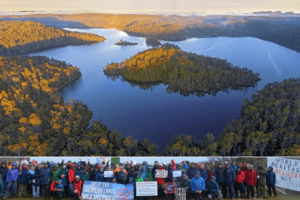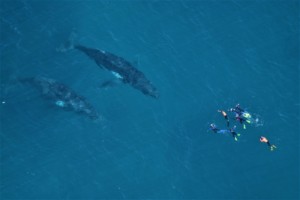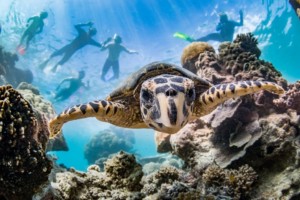Should it all be ecotourism? Reimagining travel & tourism in 2021
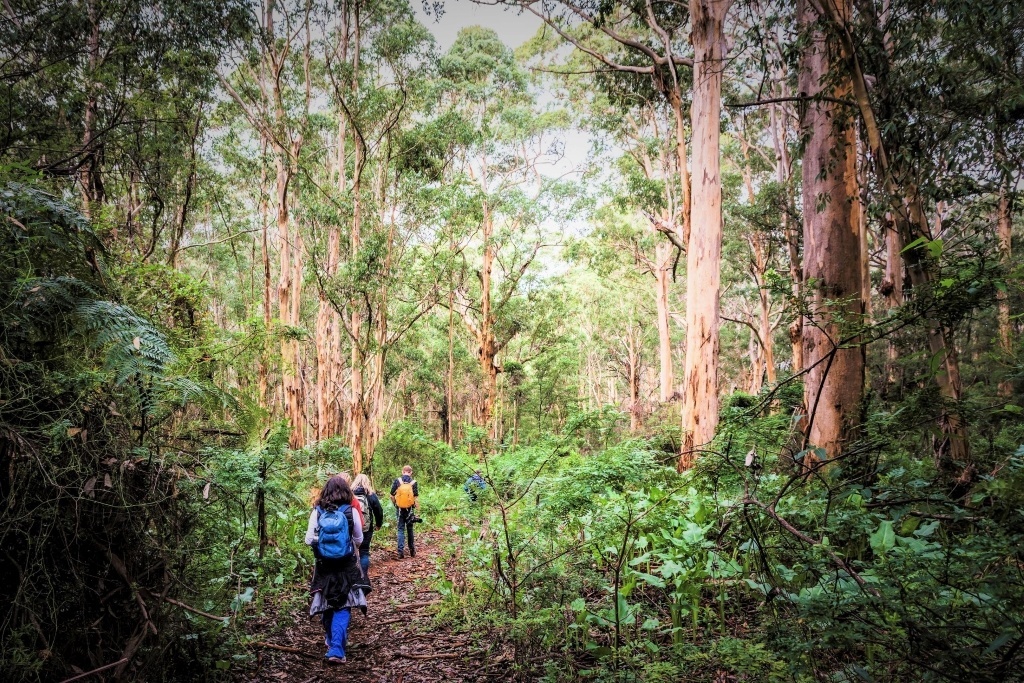
While road-tripping across Western Australia in 2020, Erika Jacobson of boutique eco-tour outfit Edgewalkers “reimagined” what travel & tourism might be like in 2021 if all stakeholders were of like mind. Dr Jacobson encourages us to reimagine with her in this “Good Tourism” Insight.
Certain that we would not be taking our guests overseas in 2021, in July 2020 I undertook a 30-day road trip in Western Australia with the goal of putting together a multi-day wilderness adventure on a par with our expeditions in Mongolia and Russia.
As I travelled from Hopetoun on the Southern Ocean, 500 kilometres southeast of Perth, to Karijini in the Pilbara, 1,300 km north of Perth, I reflected on my experience as a tourist in remote WA and my own practices as a novice ecotourism operator.
These reflections centre around three areas that — now that we have a chance to rethink how we do tourism — could be reimagined.
1. All tourism needs to be ecotourism
Story # 1
I was in a café/corner store in a coastal town where I’d already bought various food items to take away. My friends were having a coffee there but all I wanted was some hot water. I asked for this.
When the owner of the café reached for one of those take-away cups that take 20,000 years to decompose, I jumped up and asked if he would mind giving me a ceramic cup instead, since I was going to be sitting in anyway.
He was visibly upset.
“Next time you come in here don’t expect not be charged. I still have to wash the cup.”
I am not kidding.
In a coastal holiday town, I requested an easy, cheaper & sustainable alternative to a super-polluter take-way cup and I got an antagonistic and reproachful response and a threat to be charged more.
How can any tourism business operate in a conscious way unless ALL tourism businesses do? How can we educate the industry, and everyone associated with it that our livelihoods depend on the survival of the planet?
How can we reimagine an industry in which from the largest and fanciest hotels to the humblest corner stores and delis in remote, coastal towns, every tourism business is an ecotourism business?
How can we reimagine an industry in which every business abides by a code and understanding that this is how it MUST be, and that there is no other way?
2. The tourism industry can lead sustainable business
Story #2
At Murdoch University in Perth, where I am a sessional lecturer, I do an exercise in which my students create theories around a possible disruptive innovation. However, instead of using technology as an example, we look at a disruptive behaviour: veganism.
We ask: “Imagine that three out of five people are vegan and you are now in 2024. How would that have affected different industries?”
The students go through every relevant industry and theorise on what some possible scenarios might be. For example, if three out of five people do not drink cow’s milk, then the price of oat milk/almond milk/soymilk will go up and the price of milk down. Anyone who has planted alternatives to milk (like almonds) will survive, others won’t.
We could theorise in a similar way about the power of the tourism industry to impact business in general. What would be the impact on various industries if three, or two, or even just one out of five tourism businesses …
- used alternative energy?
- rented only electric vehicles?
- offset their carbon footprint through tree planting?
- used only ethical banks that do not invest in coal?
- cooked meat only twice a week?
- used only seasonal produce?
- used only non-toxic cleaning products?
- built only environmentally friendly buildings?
- served plant-based food three days a week?
- did not use plastic wrap? disposable cups? plastic lids? straws?
- did not buy any products that use palm oil?
- did not buy any glyphosate-based herbicide products?
Maybe this will take a lot of reimagining, but I am not the only one to think that the tourism industry is well placed to lead other industries and sectors in eco-friendly practices that eventually put climate change science at the forefront of all business models.
Even if it is only, at first, through our own purchasing power.
How could we make this happen?
3. We are team WA … and team Australia … and team Earth
Story #3
On my way north to the Kennedy Range and then Mt Augustus, I stopped at Gascoyne Junction because the road to the Kennedy Range was closed.
The manager of the caravan park told me the road to the Kennedy Range would be open in the morning and the officer at the Shire office confirmed this. I told her I’d be going on to Mt Augustus straight after the Kennedy Range and she gave me clear directions, marking the route on a map.
After three days in the Kennedy Range, I pulled up to turn north to head to Mt Augustus, and there was a main roads worker putting up witches’ hats to block the road.
They’d closed the road to Mt Augustus … for 10 days!
I returned to Gascoyne Junction. The Shire officer, embarrassed that she had failed to mention it, laughed and pointed to some flyers from Main Roads on the counter.
At the tourist park the manager apologised and said that Main Roads had just that very morning dropped off a pile of flyers about the closure.
For me it was no big deal to travel an extra 100 kms to Mt Augustus by an alternate route, but on that day, team WA could have done better.
Tourism, it’s true, involves many stakeholders, which makes it tricky to collaborate and communicate. Even as a small operator we deal with government departments, regulatory bodies, advocacy bodies, regional tourism organisations, local councils and shires, sometimes national tourism bodies, and other smaller agencies and organisations to be able to conduct our activities.
This 30-day trip alone traversed across the jurisdictions of 19 relevant tourism entities. Every single one of them is a main player in team WA.
Collaboration and interaction are areas where there is plenty of improvement to be made in all industries, but precisely because so many stakeholders are affected by the tourism industry, and so many businesses form the supply line, this dynamic industry is well placed to reimagine and influence a future for tourism that is truly beneficial to all inhabitants of the planet and the economy.
If we think beyond team WA, beyond team Australia, beyond the Asia-Pacific region; if we think as a global team, as team Earth, we might be able to find the common ground, shared values, and leadership to take urgent, informed, and responsible action to influence how we continue to treat our planet.
Maybe we will be able to reimagine tourism as a global industry that holds a common vision of thriving and flourishing natural environments for the whole planet?
Maybe COVID-19 will be to the tourism industry what Martin Luther was to Christianity. Maybe this is the global seismic shift we needed to totally disrupt what we collectively believe is true about how we do tourism, and how we do business in general.
What do you think? Share a short anecdote or comment below. Or write a deeper “GT” Insight. The “Good Tourism” Blog welcomes diversity of opinion and perspective about travel & tourism because travel & tourism is everyone’s business.
Featured image (top of post): From Edgewalkers’ Boranup Walking Retreat in Margaret River, Western Australia. Source.
About the author
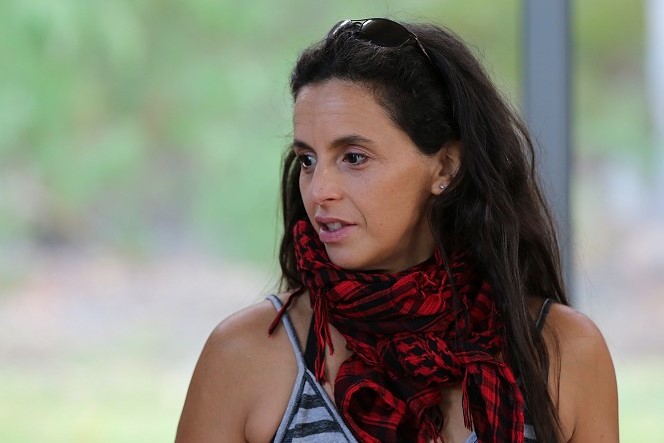
Erika Jacobson is founder and CEO of Edgewalkers, a small ecotourism company based in Fremantle, Western Australia. Although not yet fully accredited, Edgewalkers operates to “ecotourism principles of sustainability and conservation”, including as “a vegetarian/ vegan company”. In her words: “Our big vision is to play a role in helping people reconnect to nature in deep and transformative ways. We love to enable the exploration of wilderness spaces, not only of the naturally pristine locations we operate in, but also the wilderness of our imagination and creativity.” Edgewalkers takes guests on “walking adventures” and to “diverse creativity retreats” in Western Australia, Mongolia, and Russia’s Kamchatka Peninsula.
With a BA in writing, a MA in community & international development, and a PhD in transformative learning, Dr Jacobson is also a sessional lecturer in creativity & innovation at Murdoch University in Perth.


